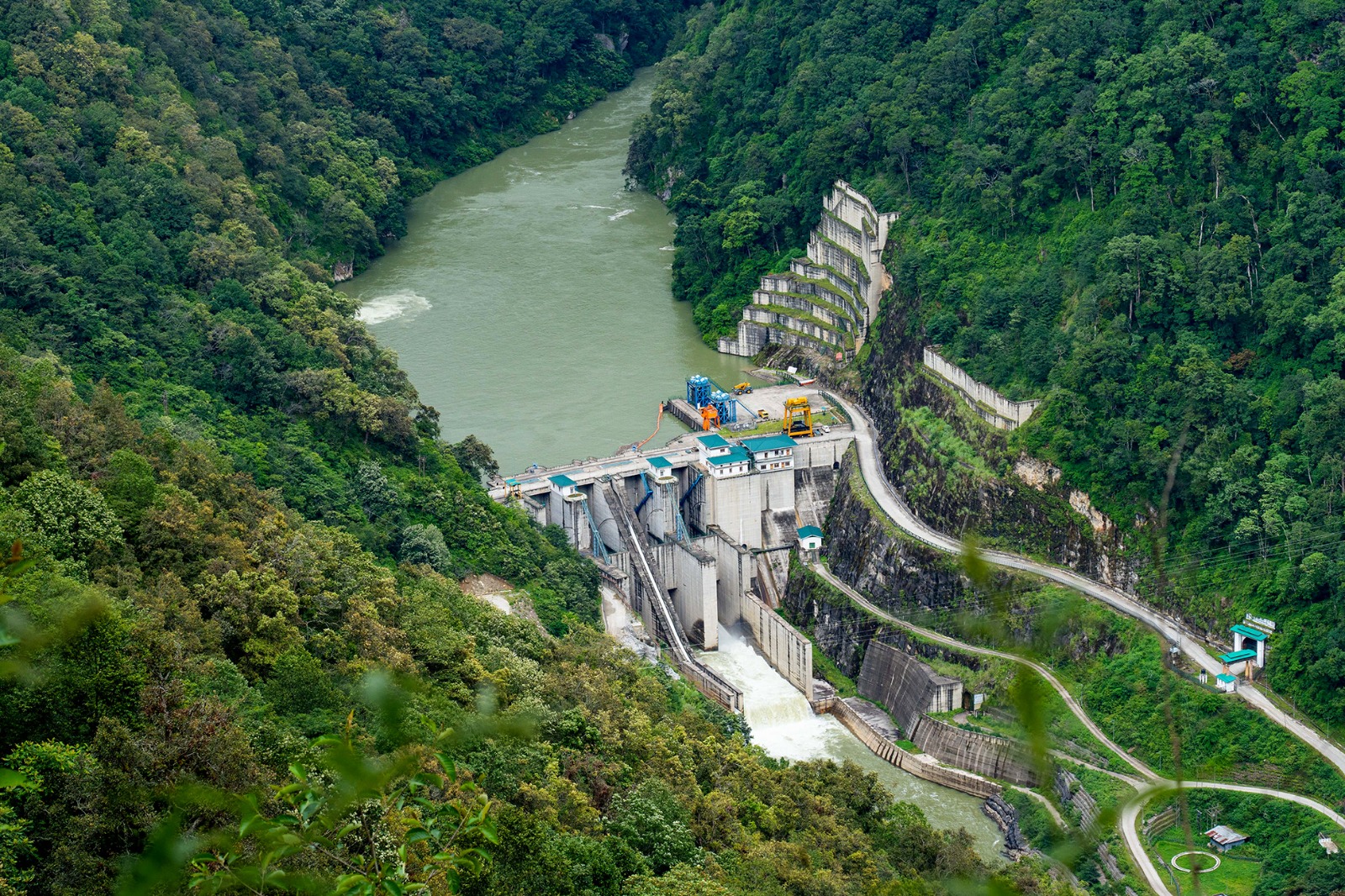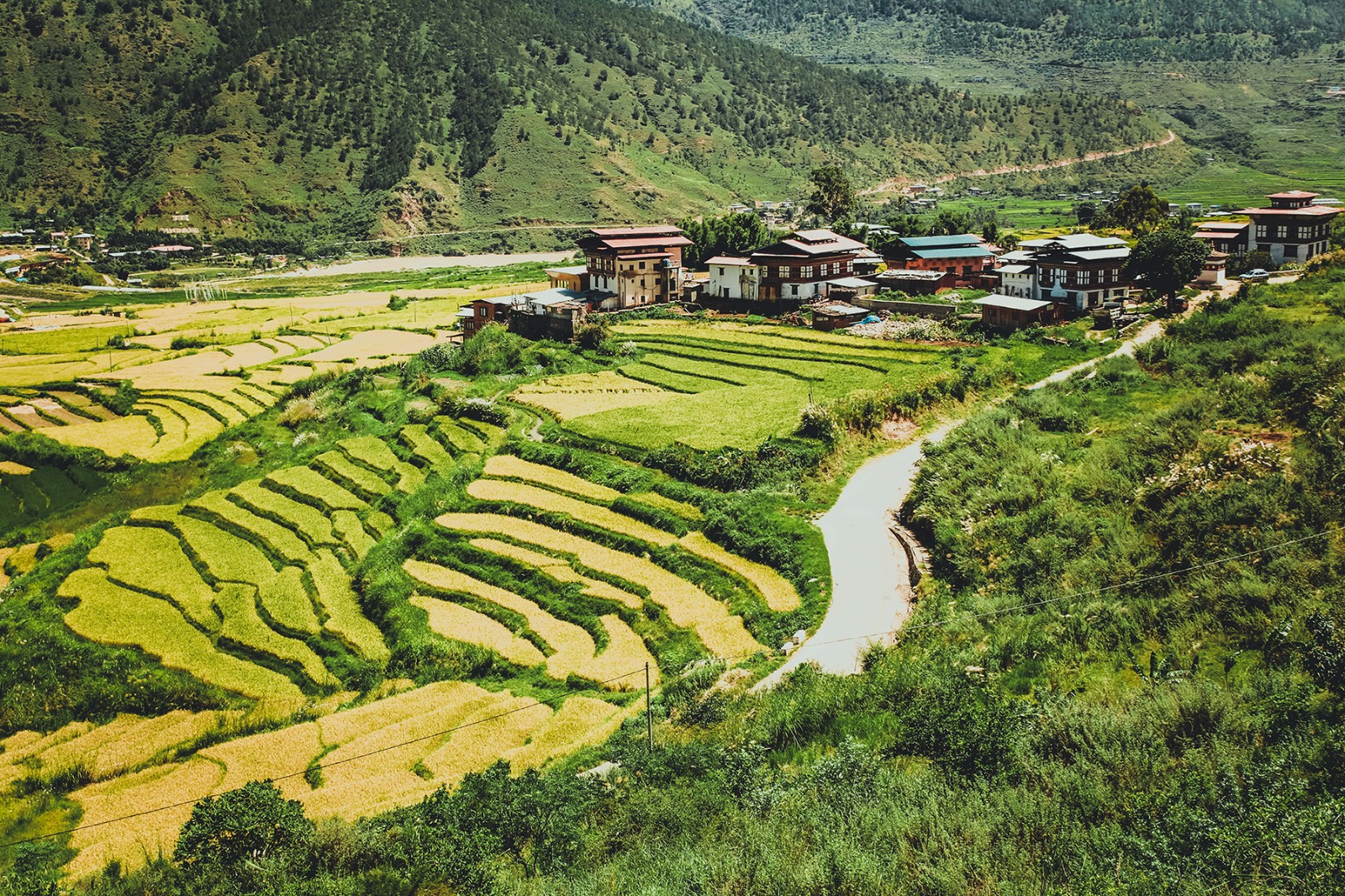Bhutan’s Green Leap: 5000 MW Hydropower Deal with Adani

Bhutan | May 8, 2025—Bhutan is poised to dramatically expand its renewable energy capacity and deepen regional energy ties, having recently sealed a landmark partnership with India’s Adani Group for the development of 5000 MW in hydropower and pumped storage capacity.
The Memorandum of Agreement was signed on May 8 in Thimphu by Druk Green Power Corporation (DGPC) Managing Director Dasho Chhewang Rinzin and Adani Green Hydro Ltd Chief Operating Officer Naresh Telgu. The ceremony was witnessed by Bhutanese Prime Minister H.E. Dasho Tshering Tobgay and Energy Minister Lyonpo Gem Tshering.
This new deal builds upon the ongoing collaboration between DGPC and the Adani Group, including the 570/900 MW Wangchhu Hydropower Project, and underscores Bhutan’s strategic commitment to scale up its renewable energy output.
Bhutan’s energy landscape

Bhutan’s energy comes primarily from hydropower, utilizing its abundant water and mountainous landscape. Six key hydroelectric plants—Tala, Mangdechhu, Chhukha, Dagachhu, Basochhu, and Kurichhu—are currently the main drivers of this sector. In 2022, hydropower accounted for a huge 95.9% of Bhutan’s electricity, with an additional 3.9% from embedded hydro sources. Despite this, fossil fuel use persists in transport, buildings, and households.
Bhutan’s ambition to export surplus clean energy has also faced headwinds in recent years, including a drop in electricity exports and a doubling of energy imports in 2022, highlighting the need for systemic improvements.
Forging energy security and regional integration
Seeing the vast potential for renewable energy pipelines in Bhutan has prompted the government to implement enabling policies and pose more ambitious national targets. The new deal with Adani is a strategic move to support Bhutan’s vision of installing 20,000 MW of renewable energy over the next 15 years. This target is framed in national policies such as the Renewable Energy Master Plan (2017–2032), the Sustainable Hydropower Development Policy (2021), the Renewable Natural Resources Strategy (2040), and the Long-Term Low Greenhouse Gas Emission and Climate Resilient Development Strategy.
By leveraging its vast hydropower potential, Bhutan seeks to strengthen domestic energy security, lower import dependence, and generate revenue from clean energy exports. The Adani Group’s role in integrating Bhutanese hydropower into India’s commercial power markets is expected to enhance regional energy trade and cooperation.
Bhutan, one of the V20 member states, is committed to advancing climate prosperity and green growth through their upcoming Climate Prosperity Plan—a long-term national investment and technology access strategy that focuses on the convergence of development, climate and nature.
This article is featured in our May newsletter. Click here to read the full issue.
